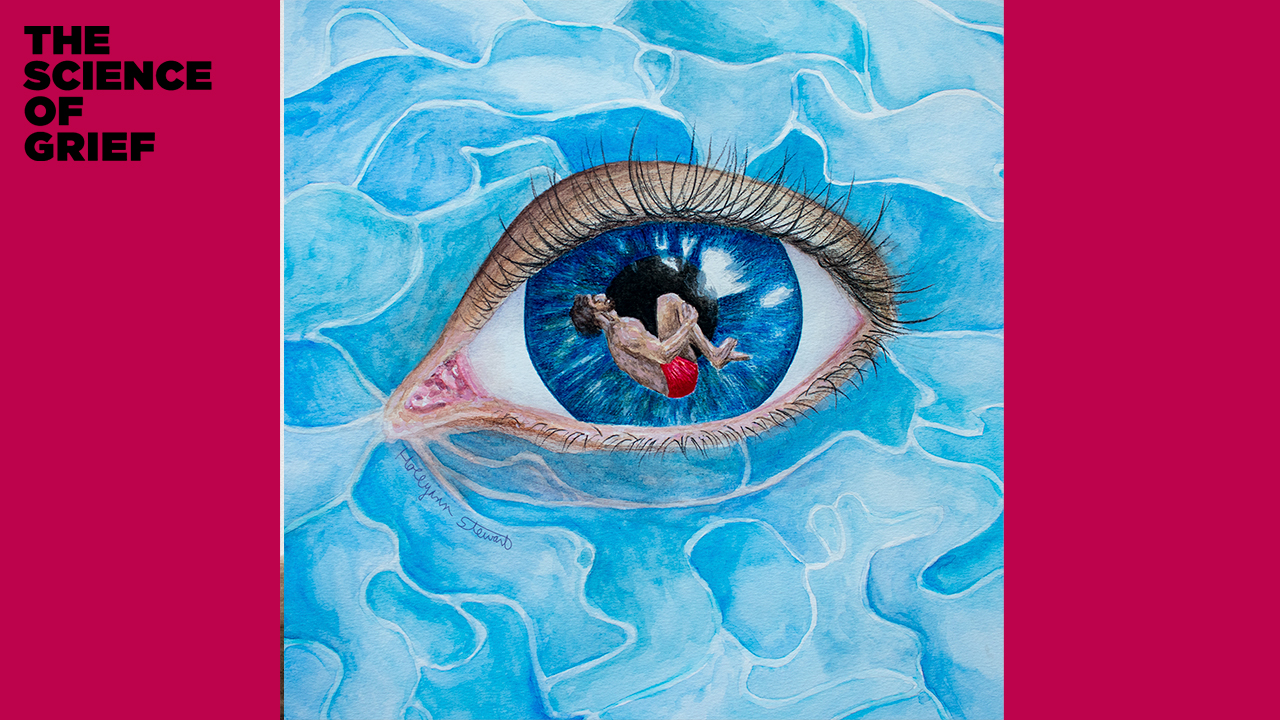Growing Up with Grief with Nolan Colter
Nolan Colter shares how losing his mother at age 11 caused him to get into trouble and shield himself emotionally through middle and high school. He then recalls the profound changes that came for him after supporting a friend in grief.

The Science of Grief, produced by WDET and Science Gallery Detroit, explores the stories, science and solutions around grief and mental health, making space for young adults to share their stories, but also lead the conversation.
Never miss an episode.
Subscribe where ever you listen to podcasts:
Apple Podcast — Spotify — NPR — Stitcher — Google Podcasts — TuneIn
Nolan Colter was 11 years old when his mother died of breast cancer. He was in sixth grade at the time.
For the next three years, through eighth grade, Nolan started getting in trouble at school.
During eighth grade, Nolan got in trouble with the police. As a result, he spent the summer before high school picking up litter as part of his community service.
“I was faced with this reality where it’s like, OK, I need to either turn things around really fast, or it’s not going to be good for the rest of high school,” he says.
By the time he got to high school, he became withdrawn and shielded himself emotionally.
The embarrassment over his actions, his dad’s supportive reaction and the memory of his mother all helped Nolan get through that difficult time and learn about himself.
“It made me want to see all of the pain and beauty and tears and laughs that come with remembering someone who has died that you miss dearly.” –Nolan Colter
Though he had great relationships with teachers and friends in high school, and he was pouring his energy into competitive swimming, Colter was depressed and still grieving his mother’s death.
Then, a close friend’s father died of cancer. When Nolan was at the wake, he was comforting his friend who was grieving her father, and he felt his emotional shield go down. He began to allow himself to feel and express the emotions that he had been keeping inside.
“Up until that point, I was still having that shield in front of my face. Not showing myself cry or drop any tears. Or even talk about it,” Nolan says. “I’ll never forget her inviting me in. I just remember that was important for me in that process of knowing what grieving is and wanting to expand how I viewed my mom’s death.”
“It made me want to see all of the pain and beauty and tears and laughs that come with remembering someone who has died that you miss dearly.”
Tips and Takeaways from mental health counselor Damika Houston:
- Avoiding emotions can be unhealthy. It’s important to express your feelings and reach out to a mental health professional if necessary.
- Write a letter to a loved one who has passed to say goodbye and find closure.
- Recognize signs of depression including: low energy, inability to eat or sleep, lack of focus, feelings of hopelessness, and not wanting to do things you enjoy.
- Give yourself space to grief and feel your emotions.
In this episode:
- Nolan Colter’s experience grieving his mother’s death at age 11
- Acting out in middle school, and being emotionally withdrawn in high school
- How supporting someone else helped him express his own feelings
- The importance of holding onto the positive feelings and memories of loved ones
Previous Episodes of Science of Grief
- Caring for Loved Ones with Dementia with Savanah Rayyan
- Navigating Gender Transitions and the Importance of Forgiveness with Alex Nitsche
- On Ghosting and Being Ghosted with Camille Rogers
- Challenging the Stigma Around Suicide with Felicia Frabis
- Learning to Cook and Savoring Life’s Moments with Jackie Garrett
- Living a Full Life with Half a Heart with Sierra Maybury
- Acknowledging Grief and Embracing Therapy with Joshua Watkis
- Setting Healthy Boundaries with Maria LoCicero
- Exploring Unexpected Loss with Aaron Burch
Seeking Help
While this podcast is meant to make space for sharing stories and solutions, it is not a substitute for professional help. If you have a mental health concern and need someone to talk to, please contact a mental health professional or your doctor.
If you are in a suicidal crisis or emotional distress, please call the National Suicide Prevention Lifeline: 800-273-8255.
The Science of Grief podcast is a collaboration between WDET and Science Gallery Detroit, and is supported by the Children’s Foundation of Michigan, MSUFCU and Science Sandbox.

Trusted, accurate, up-to-date.
WDET strives to make our journalism accessible to everyone. As a public media institution, we maintain our journalistic integrity through independent support from readers like you. If you value WDET as your source of news, music and conversation, please make a gift today.
